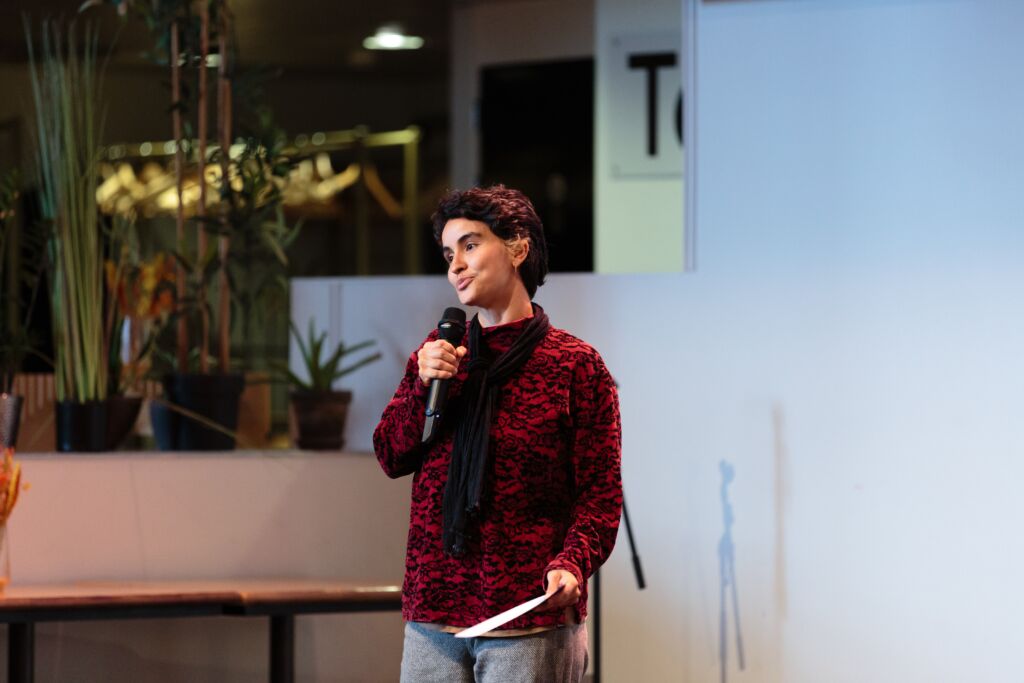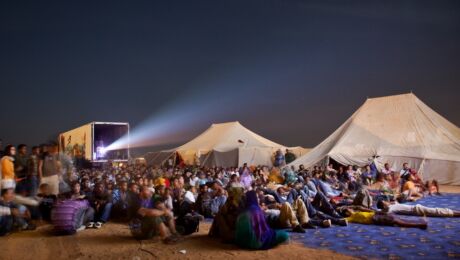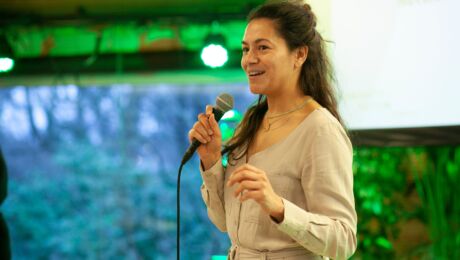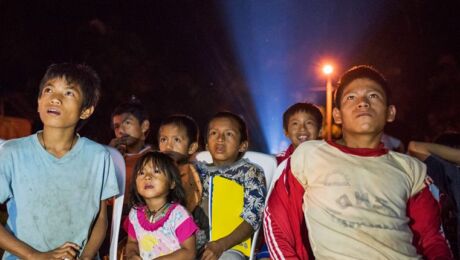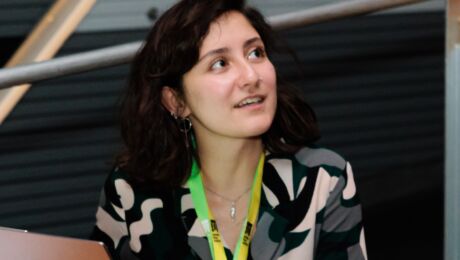Meet the Team: Tess van Bommel
Project officer Tess shares the ins and outs of our international work, which supports human rights film festivals worldwide through funding, workshops, advice and an extensive network. 07 December, 2023
Tess works for our International Support team at Movies that Matter. She lives in Maarssen, but is originally from Noord-Brabant. With a background in cultural anthropology and development studies, and various jobs in several international aid en human rights organisations, Tess has joined our team since september 2021.
What do you do at Movies that Matter?
‘I work for the International Support programme year-round and with that programme we support human rights film festivals in Africa, Asia, Latin America, the Middle East and Eastern Europe. We do this by financing, workshops, advice and networking, among other things. Two important projects in our programme are our Grant programme and our Cinema Without Borders workshops.
With our grant programme we support human rights film festivals worldwide through grants. The programme consists of both a start-up grant for emerging festivals and an impact grant for festivals that want to increase their impact or add innovative components to their programme. Cinema without Borders is a multi-day workshop programme that we as Movies that Matter organise, specifically intended for emerging human rights film festivals. The programme is about how to organise a human rights film festival. We organize two editions of Cinema without Borders each year, one of which takes place during our own festival in The Hague. We also try to organise one in a specific region to connect people from that part of the world and to zoom in on what topics, strategies or films are relevant there. In addition, I coordinate the secretariat of the Human Rights Film Network, a network of around 50 human rights film festivals worldwide, and of which Movies that Matter is one of the founders.’
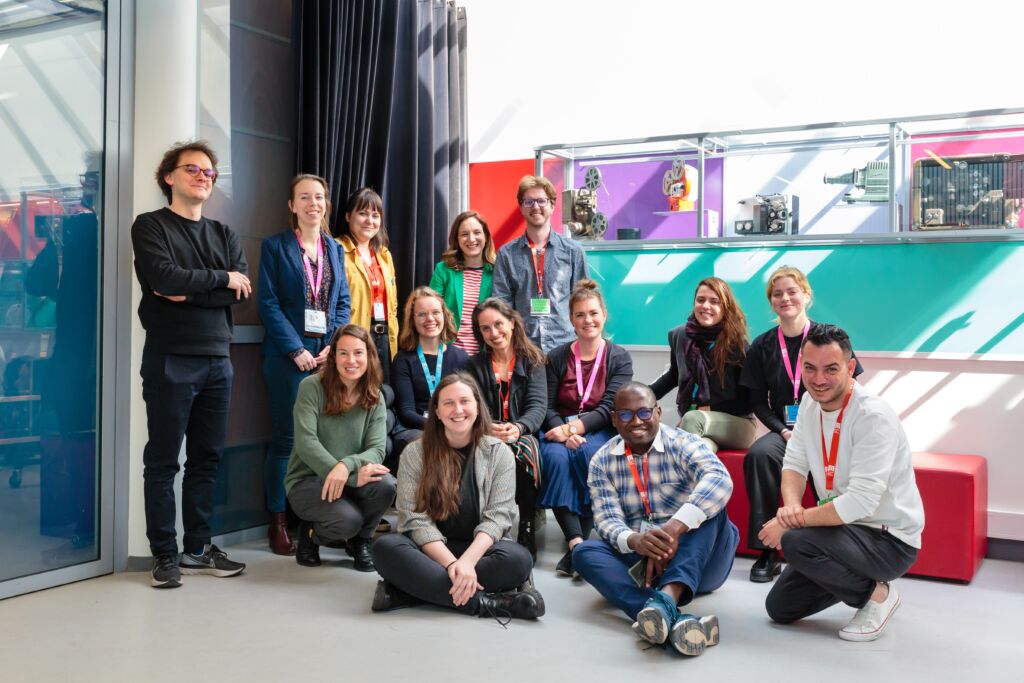
What impact does the grant programme have on film festivals in your experience?
‘With the grant programme we support festivals and film events that use the power of film to promote dialogue about human rights and other social themes. These include multi-day festivals that show films about human rights, but also mobile cinema projects that travel around with film screenings, or thematic film festivals that specifically focus on, for example, LGBTQ+ films or have a focus on environmental human rights. The grants are intended to support the objectives of the various festivals.

A common thread that we see in almost all our supported projects is that, with the support of our grants, film festivals can make films more accessible and are able to reach people who may not normally have access to film, something that is certainly important in places where human rights are at stake. It is always beautiful to hear people talk about how seeing a film about a certain subject has made them more aware of their own position, their living environment and their rights, which has inspired them to take action themselves. This awareness through film is thus very valuable.
Moreover, the impact of the grant programme is of course that we as Movies that Matter can contribute to sustaining the film festival climate worldwide, since these film festivals can take place because of our support, among other things. This not only concerns the grant itself, but also the things that we facilitate around it. In the Grant programme, we also organise events for networking between the various supported film festivals, including online webinars to allow festivals to get in touch with each other. And in addition to being able to get to know each other and gain inspiration, they will also have a place for like-minded people, people who do the same work as themselves. That can show them that they are not alone, and that is also meaningful.”
What do you think is the importance of a workshop like Cinema without Borders?
‘Workshops such as Cinema without Borders are rare and very valuable. The workshop covers how to organise a human rights film festival or event. This starts with determining the objectives your film festival wants to achieve, but also concerns practical matters. Where do you get your films from, how do you programme the films, how do you make selections? It also covers questions about what can you organise aside from the film screenings, such as follow-up conversations, Q&As or discussions and how do go about that? We also discuss how to promote a film festival and how to raise funds for your festival in the best possible ways. So, participants will receive a lot of information during the workshops that can then be applied to ones own festival. In addition, the great thing about Cinema without Borders is that it provides the opportunity for networking. Usually, between 12 and 15 participants take part in a Cinema without Borders edition. Collaborations between participants can also be established and festival organizers can learn from one another, whether it concerns what kind of programmes other festival organisers programme or what kind of partners other film festivals work with, and how that could be interesting for ones own festival. So, it is that exchange, learning from each other and networking that film festival organisers can get a lot out of in a Cinema without Borders programme.’
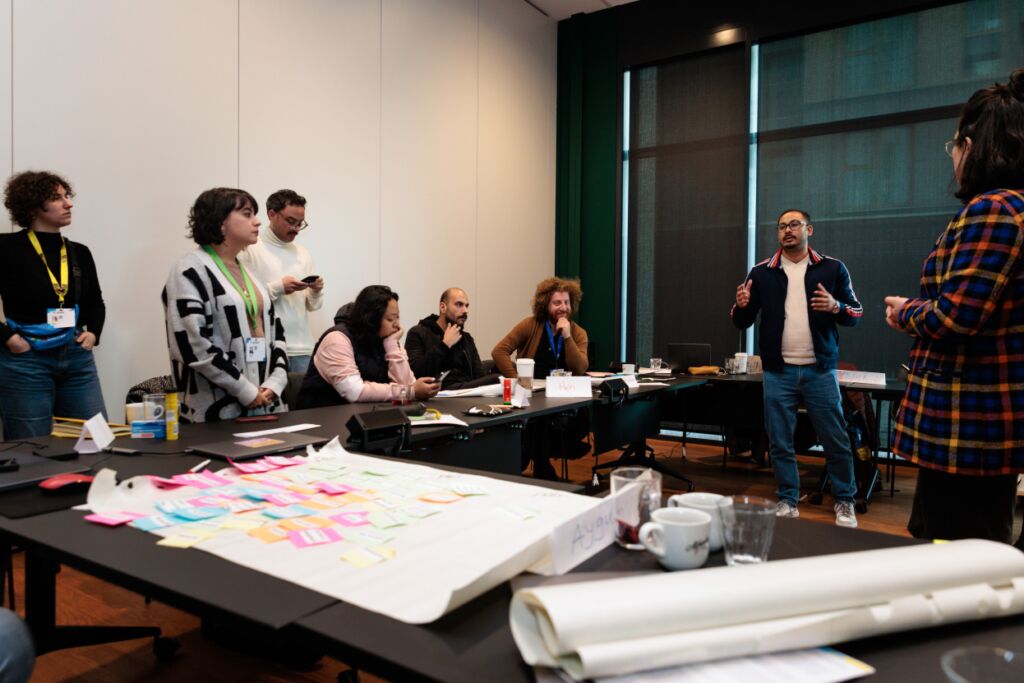
What would you still like to accomplish with Movies that Matter?
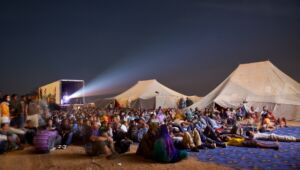
‘I think that in specific contexts, film can be a good way to discuss complicated issues. A festival like FiSahara for instance, which raises awareness about the situation of the Sahrawis in the Western Sahara by hosting the film festival in their camps, or the Red Carpet Human Rights Film Festival in Gaza City’s Shijaiyah district where conversations about human rights could take place at the festival among the debris resulting from bombings. These are examples of projects that we have supported in the past and that clearly demonstrate how films can bring people together to have conversations about human rights despite the challenging contexts in which they take place. We hope we can continue programmes like our grant programme and Cinema Without Borders for a very long time to come, to continue supporting film festivals from around the world that do such important work and actually reach people. Moreover, we hope, and this is already happening to a certain extent, that the international work of Movies that Matter will become more well-known and visible. Networking with other human rights film festivals remains an important part of this. This includes our continuous efforts to stimulate exchanges between human rights film festivals in specific regions. In this way, we could have an even greater impact and we could respond even more to what is happening in a specific region, with the aim that film festival organisers can find each other better and thus positively contribute to the human rights film climate there.’
>What are you working on in the coming weeks?
‘In one week, Cinema Without Borders will start in Burkina Faso during the festival Ciné Droit Libre. We are still making some final preparations for that. In addition, we are already preparing for the edition of Cinema Without Borders that will take place in The Hague at our own festival in 2024. The call for this is already open and people can register until January 7. Moreover, with Movies that Matter we will also be part of a workshop programme in Peru, called Festivales que Inspiran (FQI), organised by Censurados Film Festival and which will take place in Arequipa from January 15 to 18. Once there, we will provide information sessions on various topics surrounding the organization of human rights film festivals. Furthermore, every year, we put together a film menu for Dutch embassies and representatives around the world in relation to the International Day of Human Rights on the 10th of December. This year we are offering a film menu of five human rights films, which embassies can choose from and with which they can organise a film screening. In this way, we encourage film screenings about relevant topics in places where people with influence are located. In short, plenty to do in the near future.’
